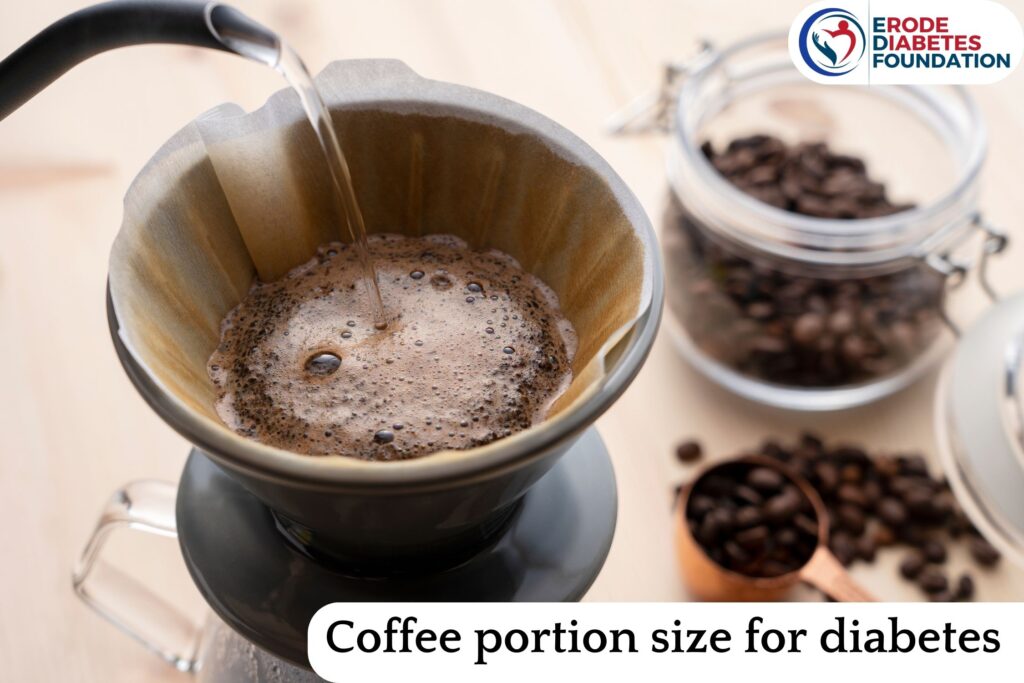The majority of individuals enjoy the flavour of coffee. There will always be uncertainties regarding coffee consumption when it comes to diabetes. Of all the questions surrounding coffee, the most significant ones would be about the coffee portion size for diabetes and which type of coffee to prefer for diabetes. For the benefit of your understanding., this blog focuses on this.
Coffee portion size for diabetes
When it comes to coffee portion sizes for diabetes be cautious of the size of your coffee cups. Smaller portions can therefore aid in regulating caffeine intake and avoiding overconsumption. Moreover, take note of how coffee affects your body. Make necessary adjustments to your coffee intake if you experience negative impacts on your blood sugar or general health.

Which type of coffee is better for diabetes?
Generally black, decaffeinated, unflavoured, high-quality coffee and appropriate coffee portion size are good for diabetes. Given that coffee comes in several forms (filter, cappuccino), let’s talk about how each variety relates to diabetes. Here, we discuss the connection between diabetes and filter coffee and also know if coffee is good for diabetes?
Filter coffee, a popular South Indian beverage can be a suitable choice for individuals with diabetes due to its unique preparation method. The use of a metal filter helps retain coffee bean compounds that may have potential health benefits, including antioxidants. However, moderation is key, as excessive caffeine intake can impact blood sugar levels.
Additionally, consider consuming it without added sugar or with sugar substitutes to better manage blood glucose levels. Always consult a healthcare professional for personalised advice on dietary choices for diabetes management.
Filter coffee and its nutrients
Filter coffee is low in calories and contains essential nutrients such as:
- Antioxidants: Coffee is rich in antioxidants, which may have potential health benefits, including anti-inflammatory properties.
- Vitamins and Minerals: It contains small amounts of essential nutrients like potassium, niacin (vitamin B3), and riboflavin (vitamin B2).
- Low-Calorie Content: Black coffee, without added sugar or cream, is low in calories, making it a suitable option for those looking to manage their calorie intake.
However, it’s important to note that the nutritional content can vary based on factors such as the type of coffee bean used and the brewing method.
To sum up
For individuals with diabetes, it’s crucial to enjoy coffee in moderation and be mindful of any additives that may affect blood sugar levels. Consult with a healthcare professional or a registered dietitian for personalized advice based on individual health needs.


